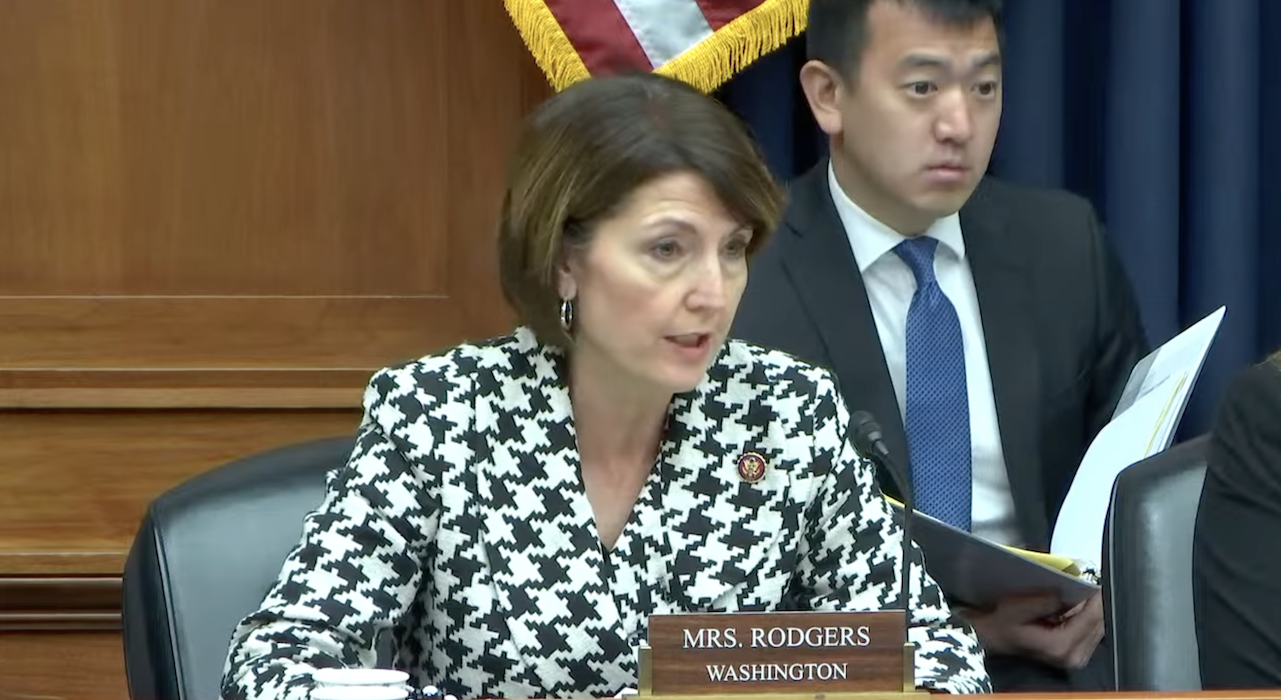House GOP Uses Oversight Hearing to Criticize FCC Actions
Partisan disputes return to FCC policies after years of a 2-2 split on the commission.
Jake Neenan

WASHINGTON, December 1, 2023 – GOP lawmakers took the opportunity to slam recent Federal Communications Commission efforts at a House oversight hearing on Thursday.
That did not come as a surprise, with the communications and technology subcommittee branding the hearing as overseeing “President Biden’s broadband takeover.” Partisan disputes have resumed around FCC policies since the appointment of commissioner Anna Gomez, who gave Democrats a 3-2 majority on the commission.
The hearing also touched on spectrum policy and the Affordable Connectivity Program, which is still set to dry up in April 2024 despite months of calls for its renewal.
Digital discrimination
The FCC voted along party lines on November 15 to instate rules addressing gaps in broadband access along racial and class lines. Those rules are taking an approach industry groups opposed and allow the commission to take enforcement action against companies for practices that do not intentionally withhold broadband from protected groups.
Technology and Communications Subcommittee members and Republican commissioner Brendan Carr echoed talking points from an industry lobbying push that characterized the rules as a “micromanagement” effort to scrutinize routine business practices.
Rep. Cathy McMorris Rodgers, R-Washington, said “burdensome requirements like these will discourage deployment and harm our efforts to close the digital divide.”
Rodgers sparred with FCC Chairwoman Jessica Rosenworcel on the issue, interrupting her answers to questions to reclaim time.
Rosenworcel, for her part, stuck to her argument that the rules are in line with the Infrastructure Act, which mandates the commission take action “preventing discrimination of access based on income level, race, ethnicity, color, religion, or national origin.”
“The language in this statute is exceptionally broad,” she said.
The act also directs the commission to take into account technical and economic feasibility of deploying networks in poor and rural areas, but Rosenworcel’s assurances that the FCC will do so have not convinced industry or Republicans.
Net neutrality
The commission also moved forward on plans to reinstate net neutrality rules in October. The rules would classify broadband internet as a telecommunications service under Title II of the Communications Act of 1934, opening the industry up to more expansive regulatory oversight from the FCC.
Similar rules were in place for two years before being repealed by the Trump FCC in 2017.
Republican committee members grilled the commission on Democratic warnings that the repeal would result in widespread traffic throttling, which did not materialize at scale in Title II’s absence.
Subcommittee Chairman Rep. Bob Latta, R-Ohio, asked Rosenworcel “when the so-called net neutrality rules were repealed, did it end the internet as we know it today, yes or no?”
The commission chairwoman answered a string of similar questions by saying the anticlimactic end to Title II broadband rules was “a result of more than about a dozen states stepping in and developing their own net neutrality laws.”
Commissioner Carr also argued with Rosenworcel on Title II’s impact on national security, talking over each other at points. Carr said there had been “one briefing” in his six year tenure in which he was told about a security issue the government could not address without Title II oversight over broadband.
Rosenworcel said she has told national security authorities “over and over again” that without Title II authority, she cannot take requested actions to stop bad actors from hijacking traffic.
The commission is taking public comments on the proposed net neutrality rules until January 2024.









Member discussion